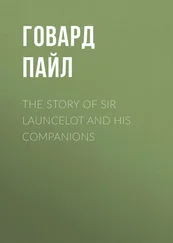Jean Plaidy - Murder Most Royal - The Story of Anne Boleyn and Catherine Howard
Здесь есть возможность читать онлайн «Jean Plaidy - Murder Most Royal - The Story of Anne Boleyn and Catherine Howard» весь текст электронной книги совершенно бесплатно (целиком полную версию без сокращений). В некоторых случаях можно слушать аудио, скачать через торрент в формате fb2 и присутствует краткое содержание. Жанр: Старинная литература, на русском языке. Описание произведения, (предисловие) а так же отзывы посетителей доступны на портале библиотеки ЛибКат.
- Название:Murder Most Royal: The Story of Anne Boleyn and Catherine Howard
- Автор:
- Жанр:
- Год:неизвестен
- ISBN:нет данных
- Рейтинг книги:3 / 5. Голосов: 1
-
Избранное:Добавить в избранное
- Отзывы:
-
Ваша оценка:
- 60
- 1
- 2
- 3
- 4
- 5
Murder Most Royal: The Story of Anne Boleyn and Catherine Howard: краткое содержание, описание и аннотация
Предлагаем к чтению аннотацию, описание, краткое содержание или предисловие (зависит от того, что написал сам автор книги «Murder Most Royal: The Story of Anne Boleyn and Catherine Howard»). Если вы не нашли необходимую информацию о книге — напишите в комментариях, мы постараемся отыскать её.
Murder Most Royal: The Story of Anne Boleyn and Catherine Howard — читать онлайн бесплатно полную книгу (весь текст) целиком
Ниже представлен текст книги, разбитый по страницам. Система сохранения места последней прочитанной страницы, позволяет с удобством читать онлайн бесплатно книгу «Murder Most Royal: The Story of Anne Boleyn and Catherine Howard», без необходимости каждый раз заново искать на чём Вы остановились. Поставьте закладку, и сможете в любой момент перейти на страницу, на которой закончили чтение.
Интервал:
Закладка:
The sight of the table in the great dining-hall brought a glister of pride into Sir Thomas’s eyes. On it were laid out in most lavish array great joints of beef, mutton and venison, hare and seasoned peacocks; there were vegetables and fruit, and great pies and pastries. Sir Thomas’s harrying of his cooks and scullions had been well worthwhile, and he felt that the great kitchens of Hever had done him justice. The King eyed this display with an approval which might have been more marked, had not his thoughts been inclined to dwell more upon Sir Thomas’s daughter than on his table.
They took their seats, the King in the place of honor at the right hand of his host, the small company he had brought with him ranged about the table. There was one face for which the King looked in vain; Sir Thomas, ever eager to anticipate the smallest wish of his sovereign, saw the King’s searching look and understood it; he called a serving-maid to him and whispered sharply to her to go at once to his daughter and bid her to the table without a second’s delay. The maid returned with the disconcerting message that Sir Thomas’s daughter suffered from a headache and would not come to the table that day. The King, watching this little by-play with the greatest interest, heard every word.
“Go back at once,” said Sir Thomas, “and tell the lady I command her presence here at once!”
“Stay!” interceded Henry, his voice startling Sir Thomas by its unusual softness. “Allow me to deal with the matter, good Thomas. Come hither, girl.”
The poor little serving-maid dropped a frightened curtsey and feared she would not be able to understand the King’s commands, so overawed was she by his notice.
“Tell the lady from us,” said Henry, “that we are indeed sorry for the headache. Tell her it doubtless comes from lingering too daringly in the rays of the sun. Tell her we excuse her and wish her good speed in her recovery.”
He did not see Anne again, for she kept to her room. Next morning he left Hever. He looked up at its windows, wondering which might be hers, telling himself that no girl, however haughty, however self-possessed, would be able to prevent herself from taking one glimpse at her King. But there was no sign of a face at any window. Disconsolate, bemused, the King rode away from Hever.
The great Cardinal, he who was Lord Chancellor of the realm, rode through the crowds. Before him and behind went his gentlemen attendants, for the great man never rode abroad but that he must impress the people with his greatness. He sat his mule with a dignity which would have become a king. What though his body were weak, his digestion poor, that he was very far from robust and suffered many ailments! His mind was the keenest, the most able, the most profound in the kingdom; and thus, first through the King’s father, and more effectively through his gracious son, had Thomas Wolsey come to his high office. His success, he knew well, lay with his understanding of the King—that fine robustious animal—and when he was but almoner to his gracious lord he had used that knowledge and so distinguished himself. There had been those counsellors who might urge the King to leave his pleasure and devote more time to affairs of state. Not so Thomas Wolsey! Let the King leave tiresome matters to his most dutiful servant. Let the King pursue his pleasures. Leave the wearisome matters to his most obedient—and what was all-important—to his most able Wolsey! How well the King loved those who did his will! This King, this immense man—in whom all emotions matched his huge body—hated fiercely and could love well. And he had loved Wolsey, in whose hands he could so safely place those matters that were important to his kingdom but so monotonously dull to his royal mind. And never was a man more content than Wolsey that this should be so. He, arrogant, imperious as his master, had had the indignity to be born the son of a poor man of Ipswich, and by his own fine brain had replaced indignity with honor. The Ipswich merchant’s son was the best loved friend of the English King, and how doubly dear were those luxuries and those extravagances with which he, who had once suffered from obscurity, now surrounded himself! If he were over-lavish, he forgave himself; he had to wash the taste of Ipswich from his mouth.
As he rode on his ceremonious way, the people watched him. To his nose he held what might appear to be an orange, and what was really a guard against disease; for all the natural matter had been taken from the orange and in its place was stuffed part of a sponge containing vinegar and such concoctions as would preserve a great man from the pestilence which floated in the London air. Perhaps the people murmured against him; there were those who gave him sullen looks. Is this a man of God? they asked each other. This Wolsey—no higher born than you or I—who surrounds himself with elegance and luxury at the expense of the hard-pressed people! This gourmet, who must get special dispensation from the Pope that he need not follow the Lenten observances! They say he never forgives a slight. They say his hands are as red as his robes. What of brave Buckingham! A marvel it is that the headless ghost of the Duke does not haunt his murderer!
If Wolsey could have spoken to them of Buckingham, he could have told them that a man, who will at any cost hold the King’s favor, must often steep his hands in blood. Buckingham had been a fool. Buckingham had insulted Wolsey, and Wolsey had brought a charge against him of treasonable sorcery. Buckingham went to the block, not for his treasonable sorcery; he died because he had committed the unforgivable sin of being too nearly related to the King. He stood too close to the throne, and the Tudors had not been in possession of it long enough to be able to regard such an offense lightly. Thus it was one kept the favor of kings; by learning their unuttered desires and anticipating their wishes; thus one remained the power behind the throne, one’s eyes alert, one’s ears trained to catch the faintest inflection of the royal voice, fearful lest the mighty puppet might become the master.
In the presence-chamber Wolsey awaited audience of the King. He came, fresh from his Kentish journey, flushed with health, his eyes beaming with pleasure as they rested on his best-loved statesman.
“I would speak with Your Majesty on one or two matters,” said the Chancellor-Cardinal when he had congratulated the King on his healthy appearance.
“Matters of state! Matters of state, eh? Let us look into these matters, good Thomas.”
Wolsey spread papers on the table, and the royal signature was appended to them. The King listened, though his manner was a little absent.
“You are a good man, Thomas,” he said, “and we love you well.”
“Your Majesty’s regard is my most treasured possession.”
The King laughed heartily, but his voice was a trifle acid when he spoke. “Then the King is pleased, for to be the most treasured of all your possessions, my rich friend, is indeed to be of great price!”
Wolsey felt the faintest twinge of uneasiness, until he saw in his sovereign’s face a look he knew well. There was a glaze over the bright little eyes, the cruel mouth had softened, and when the King spoke, his voice was gentle.
“Wolsey, I have been discoursing with a young lady who has the wit of an angel, and is worthy to wear a crown.”
Wolsey, alert, suppressed his smile with the desire to rub his hands together in his glee.
“It is sufficient if Your Majesty finds her worthy of your love,” he whispered.
The King pulled at his beard.
“Nay, Thomas, I fear she would never condescend that way.”
“Sire, great princes, if they choose to play the lover, have that in their power to mollify a heart of steel.”
Читать дальшеИнтервал:
Закладка:
Похожие книги на «Murder Most Royal: The Story of Anne Boleyn and Catherine Howard»
Представляем Вашему вниманию похожие книги на «Murder Most Royal: The Story of Anne Boleyn and Catherine Howard» списком для выбора. Мы отобрали схожую по названию и смыслу литературу в надежде предоставить читателям больше вариантов отыскать новые, интересные, ещё непрочитанные произведения.
Обсуждение, отзывы о книге «Murder Most Royal: The Story of Anne Boleyn and Catherine Howard» и просто собственные мнения читателей. Оставьте ваши комментарии, напишите, что Вы думаете о произведении, его смысле или главных героях. Укажите что конкретно понравилось, а что нет, и почему Вы так считаете.












